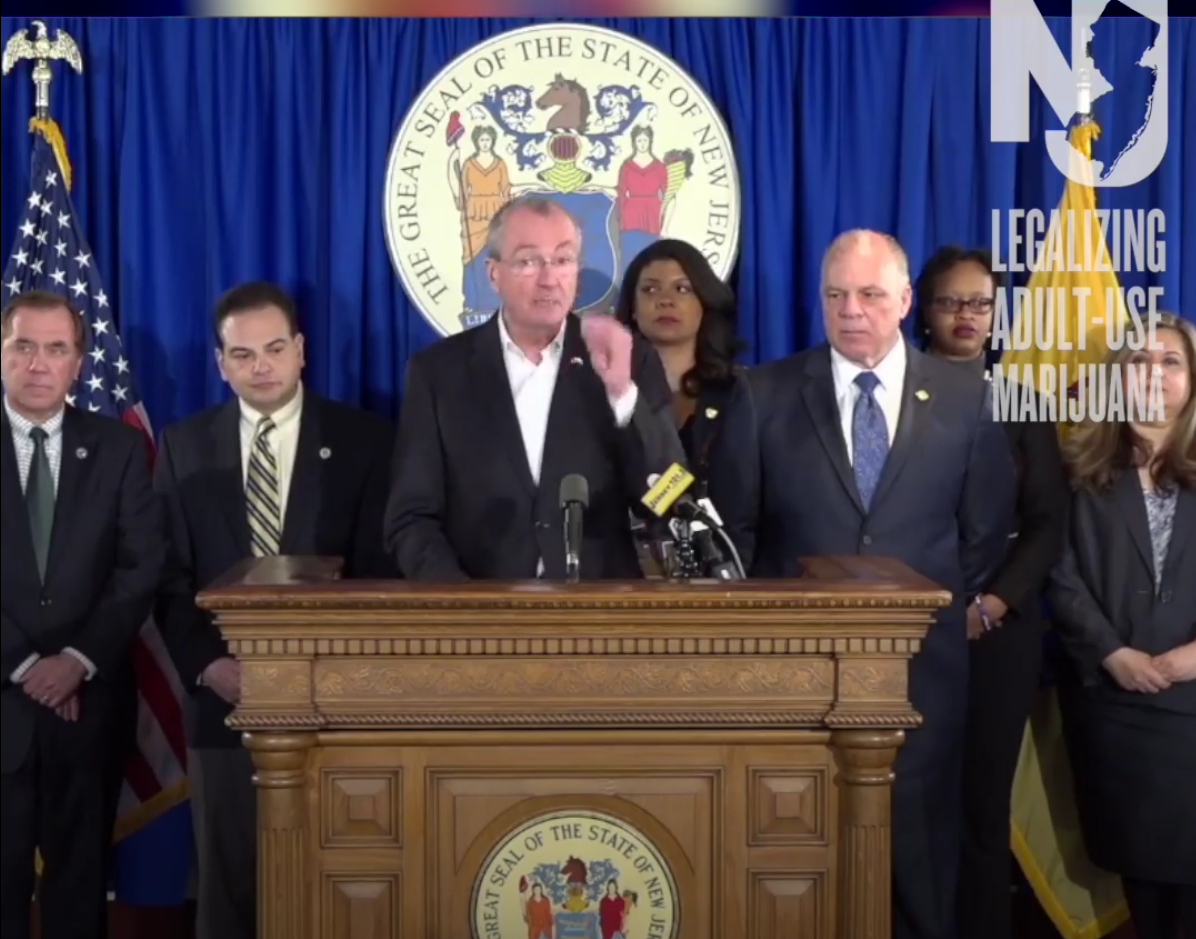
BY MICHAEL OLOHAN
OF PASCACK PRESS/NORTHERN VALLEY PRESS
With the possible legalization of recreational marijuana in 2018 moving forward in New Jersey, police chiefs in some Northern Valley and Pascack Valley towns are concerned that their officers’ jobs will get much more busy dealing with impaired drivers and more difficult in trying to determine the source of impairment.
And many municipalities – and their statewide organization – appear to just be getting started on understanding what may lie ahead regarding increased costs for police training, traffic accidents, increased usage and local sales of marijuana.
While a test for alcohol intoxication makes it easy to determine whether a driver is legally intoxicated, no such field-ready test exists for marijuana, and its psychoactive component hydroxy THC, which causes impairment and disappears from blood plasma within six hours of ingestion.
A random survey of local police chiefs – and the Bergen County association representing them – found nearly unanimous opposition to legalization of marijuana based on the lack of an effective test for impairment as well as a likely predicted rise in traffic accidents due to another “legal” drug that complicates law enforcement duties.
Gov. Phil Murphy made marijuana legalization – within 100 days of his Jan. 16 inauguration – a cornerstone of his election campaign, although some Democratic lawmakers recently expressed reservations on legalization and it appears legislation is advancing more slowly.
However, during the campaign Murphy predicted that $600 million yearly could be raised by a tax on millionaires and $300 million from a tax on legal marijuana sales.
Under state Sen. Nicholas Scutari’s (D-Union) legalization bill reintroduced in January, marijuana sales are taxed at 7 percent in year one; 10 percent in year two; 15 percent in year three; 20 percent in year four; and 25 percent in year five and beyond. It also repeals a tax on medical marijuana.
[slideshow_deploy id=’899′]
Tax dollars and justice
While tax revenues appear to be the major driving force behind possible legalization – with municipalities that eventually allow local pot sales likely to reap a 3 percent sales tax – social justice is also a prominent concern.
New Jersey United for Marijuana Reform – a partnership of ACLU-NJ, Latino Action Network, NAACP NJ State Conference, Law Enforcement Action Partnership, Doctors for Cannabis Regulation, and the National Organization for Reform of Marijuana Laws – says unequal enforcement of marijuana laws hurts minority communities.
“Despite evidence that blacks and whites use marijuana at about the same rate, blacks are arrested at a rate three times higher than whites,” states the marijuana advocacy group’s website.
“The debilitating costs of a small marijuana possession conviction become even more problematic when they disproportionately impact communities of color,” it states.
The stigma and humiliation of an arrest, bail and legal costs, and hours lost in school or work time, are all costs of a marijuana arrest, says the group.
Legalizing marijuana may eliminate up to 25,000 arrests per year and help “strike a blow to the harms of racial disparities in our broken criminal justice system,” states the group.
Efforts to reach NJUMR for comment were not returned by press time.
Currently eight states, plus the District of Columbia, have allowed recreational marijuana use since 2012.
[slideshow_deploy id=’899′]
Detection is challenging
Not having a reliable test to determine the levels of hydroxy THC (the active metabolite in marijuana) is worrisome and complicates the ability of local police to charge drivers with DWI.
While field tests may indicate a driver is impaired, without a reliable test for marijuana impairment, charging the driver becomes more difficult.
“It’s scary. Nobody wants to see any more impaired driving. I have concerns that it is going to be very difficult to determine the amount of marijuana in a person’s system. And one would imagine that there would be a big uptick in impaired driving,” said Montvale Police Chief Jeremy Abrams.
Currently, Abrams said Montvale has one drug recognition expert, known as a DRE, who is legally qualified to conduct an evaluation to determine impairment based on a series of tests and questions administered to an allegedly impaired driver.
Generally, officers administer field sobriety tests, and take a breath sample to analyze for alcohol intoxication. If no alcohol is detected, or the amount detected does not match their observed impairment level, the department can contact the DRE for more evaluation of an impaired individual.
While Montvale has one DRE now, Abrams said he was likely to send another officer for DRE training this year. He said DRE training was “an expensive proposition” that involved an officer being away for two weeks or more for training, classroom work, and post-training evaluations.
“I don’t think we’re ready for this [legalization] now,” said Abrams. “It is in fact difficult to test for this, the science is not there. This changes the game negatively for us,” he noted. He said he would prefer “more definitive testing measures be in place for police departments” before legalization is considered.
[slideshow_deploy id=’899′]
Reasons against legalization
Tenafly Chief Robert Chamberlain said the legalization of marijuana “comes with a lot of unknowns” including how to test for impairment, public safety concerns with likely more impaired drivers, and the fact that “implied consent” now only allows officers to test drivers for alcohol impairment, not marijuana, and charge them if they refuse.
“Marijuana detection is much more difficult, but our officers have the training from drunk driving [impairment] testing, so even when there’s no odor they know the signs of impairment,” said Chamberlain.
Tenafly has one officer trained as a DRE available should officers need to consult him, with Chamberlain noting that another is definitely needed. He said he is most concerned with a likely increase in traffic accidents should marijuana be legalized for recreational use.
“We’re going to have to step up our efforts in training, and it’s going to have an impact particularly with traffic safety. Now, suddenly, we’re adding this element [legalized marijuana] to all the issues we already have. I’m very concerned that we’ll be adding to our impaired driving numbers,” said Chamberlain.
He stressed police chiefs “are for the most part against this” due to increased public safety issues and increased accidents, another legal drug that leads to drivers’ impairment, and a belief that it will lead to more distracted drivers in densely populated, traffic-congested Bergen County.
[slideshow_deploy id=’899′]
No odors or smells
Englewood Police Chief Lawrence D. Suffern said “having a detection plan in place is going to be key for a lot of departments” especially given that marijuana can be ingested using vaporizing devices, or vapes, that use liquid vapor infused with THC. In addition, marijuana “edibles” such as candy infused with marijuana produce no odor or smell, he said.
He said legalization’s effects on police departments – and public safety – are partially dependent on what the final legislation approving it requires and provides to local departments.
“Our officers have to rely on their training to determine key elements of impairment,” said Suffern. He said though Englewood does not currently have a DRE officer on staff, he hopes to send one or two officers for training in 2018.
He said potential legalization “may be contributing to levels of addiction” for drug users and said many have long considered marijuana “a gateway drug.”
“A lot of people who use narcotics usually use more than one,” he noted. Given the opioid abuse epidemic occurring statewide, Suffern said “with this [legalization] on the heels of that…there’s a lot of unknown variables here.”
[slideshow_deploy id=’899′]
Accident rate ‘skyrocketed’
Park Ridge Police Chief Joseph J. Madden, president of Bergen County Police Chiefs’ Association, said data from Colorado where recreational marijuana is legal show that “the motor vehicle accident rate has skyrocketed.”
Madden said the association and police chiefs will have input on Gov. Murphy’s transition team to try to influence the governor’s thinking as well as the legislation to legalize marijuana moving through state government committees.
“People seem to think that if marijuana is legalized, it won’t be monitored. Well, it will be, [such as] who gets to be the seller and who does not. We’re never going to come off the fact we’re not in favor of marijuana legalization,” he said.
Madden noted one concern brought up “over and over again” is how to quantify marijuana impairment for DWI.
“There’s just no accurate measure for that,” he said.
Madden said compared to the standardized Alco-Test and blood-alcohol concentration limit of 0.08 percent established by law, nothing similar exists for THC detection.
Madden said the number of drug recognition experts – approximately 460 officers statewide – “should be increased significantly” to deal with marijuana legalization.
“We have to have faith in our officers. All those field tests are very important, especially when someone has been operating a vehicle in an errant manner,” stressed Madden.
He said he wants state officials to learn from the errors made in states such as Colorado where pot is legal. He said there are ongoing efforts to get accurate marijuana detection based on urine and saliva testing.
“With the governor including some great law enforcement minds on his transition, hopefully if it’s legalized, it will have parameters we agree with,” he said.
[slideshow_deploy id=’899′]
On the border
In addition to police chiefs’ concerns, Old Tappan Mayor John Kramer said he’s worried as Old Tappan borders New York and legalization here may cause out-of-state residents to enter the borough to purchase pot, leading to illegal commerce.
“If our governor is successful and brings this to pass, we’re a border town so folks may want to come over here to buy it,” said Kramer, who is also a former Old Tappan police chief.
He said the borough council would be “gathering ordinances” that may pertain to local marijuana issues for consideration.
“There are many issues to be addressed, such as driving under the influence. We see in Colorado how motor vehicle crashes have increased there” since legalization, Kramer said.
Efforts to reach police chiefs in Old Tappan, Haworth, and Hillsdale were not returned by press time.
[slideshow_deploy id=’899′]
Municipalities weigh in
Should legalization occur within Murphy’s first 100 days – or later – the state League of Municipalities hopes to be ready to offer guidance to municipalities.
Four League subcommittees that include mayors and local government members were recently formed to address legalization issues including public safety, budget and finance, quality of life and land use, said Jon Moran, a senior legislative analyst.
Moran said he hopes the committees may issue recommendations in two to three weeks, and are looking at experiences of communities in Colorado and Washington.
“Our focus is if this [legalization bill] becomes law, we want the final bill to reflect the concerns of local officials. That it recognizes the costs and benefits…costs to local law enforcement, local courts, and gives local governments the maximum discretion possible,” said Moran.
He said Scutari’s bill, reintroduced in January, allows towns to “opt-out” of allowing local sales of marijuana within one year of enactment. If a town does not adopt an ordinance to opt-out, local sales would be allowed. An opt-out ordinance would cover a five-year period, and must be introduced and passed after five years to ban future sales.
Moran said only towns allowing sales would be entitled to tax revenues under pending legislation, but concerns about unfunded costs and consequences of legalization affecting all towns needs to be addressed.
“Costs don’t stop at the municipal line. We want to make sure all municipalities have the resources they need that result from legalization,” Moran said.
Photo courtesy Flickr/Phil Murphy for Governor


